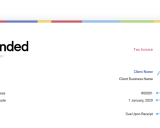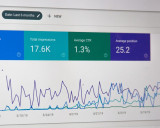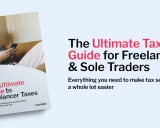
Single Touch Payroll - Everything you need to know as a freelancer
There is a lot of information about Single Touch Payroll (STP) online. Very little of it is written for the benefit of solo business owners. This makes getting a clear picture of obligations and responsibilities harder than it should be.
Article contents
− +
We decided to investigate what STP means for the freelancer/sole trader and chatted with Electra Frost of Electra Frost Accounting* to find out more.
Background
In 2018 the ATO introduced Single Touch Payroll (STP) for businesses with 20+ employees. It was originally announced that from July 1st 2019, all businesses with one or more employee would have to be STP compliant. However more recently additional options for very small and micro-employers (one-to-four employees) have been released.
As the 1st July deadline has drawn closer we’ve seen an increasing number of queries from the Rounded community about what STP means for freelancers and sole traders. Questions like:
What is STP?
I’m a freelancer/sole trader trading via an ABN. Do I need to be STP compliant?
I sometimes work with and have to pay other contractors who are not my employees. Does this change anything?
I’m a freelancer/sole trader trading via a Limited company structure. Do I need to be STP compliant?
Does Rounded support STP?
Rounded: What is STP?
Electra Frost: The ATO defines Single Touch Payroll (STP) as:
“...a new way of reporting tax and super information to the ATO.
If you are using a solution that offers STP reporting, such as payroll or accounting software, you will send your employees' tax and super information to us each time you run your payroll and pay your employees”
It’s real-time reporting, with the ATO tapping into the business process of paying staff so that employers no longer have to issue annual PAYG payment summaries.
Rounded: Does a freelancer/sole trader trading via an ABN need to be STP compliant?
Electra Frost: As long as Freelancers or sole traders trading via an ABN don’t have employees or contractors that they withhold PAYG for, they don’t need to comply with STP reporting or implement any special STP reporting/payroll software.
Rounded: What about freelancers/sole traders who work with and have to pay other contractors who are not employees. Does this change anything?

Electra Frost: Paying other contractors as contractors doesn’t require a freelancer/sole trader to be STP compliant. Payments to contractors are treated as a business expense not payroll so no STP reporting is required.
However, it may be necessary to check whether any of those contractors are likely to be regarded by the ATO as employees. The ATO website explains the differences between employees and contractors.
Why is this important? From 1 July 2019, a tax deduction can be denied if an ‘employer’ fails to withhold PAYG when they should have. If unsure about the status of someone you are paying, you should discuss their contracting arrangement with your accountant or tax agent.
Rounded: Some freelancers/sole traders trade via a Proprietary Limited (Pty Ltd) company structure. Do they need to be STP compliant?
Electra Frost: This is where things become a little more complicated as there are numerous ways that business owner/operator can take money out of their private company. In reality, though, unless you are paying yourself a directors salary and withholding PAYG tax you don’t need to become STP compliant.
There is now an extension to 1 July 2020 for ‘closely held payees’ to come under STP reporting, the ATO has announced.
The ATO recognises that ‘closely held payees’, which include directors of a company and the family members of a family business, are often paid irregularly. The ATO is also indicating that these payments may be estimated quarterly in future, with adjustments made at the time the tax return is completed.
So, all those micro-business owners who like to finalise their own wages and dividends when they meet with their tax agent for their June BAS and tax return, may continue to do so. As long as they don’t have any employees, they also don’t have to do STP reporting until next year.
Does Rounded support STP?
Rounded doesn’t have a payroll feature and doesn’t support STP.
Electra Frost: From July 2020, Rounded users trading via a proprietary limited company who are paying themselves a wage and withholding PAYG tax will need to use another piece of software or outsourced provider to manage payroll. As long as that software or provider is STP compliant, obligations should be catered for. If you choose the 1-year exemption, you can evaluate your options in the meantime.
The good news is that for most freelancers or sole traders trading via an ABN, STP will have no impact and you can continue with business as usual.
*Electra Frost is the Principal of Electra Frost Accounting, a Chartered Tax Adviser and Accountant who has worked with freelancers and the creative industries for 20 years.
The above information is general in nature and is not intended to be advice. Tax laws and technology are constantly changing. To be absolutely sure of what’s right for you and your business we encourage you to speak to an accountant or registered tax agent.
Contents
Join newsletter
ABOUT ROUNDED
Invoicing and accounting software for sole traders. Get paid faster and relax at tax time.
























